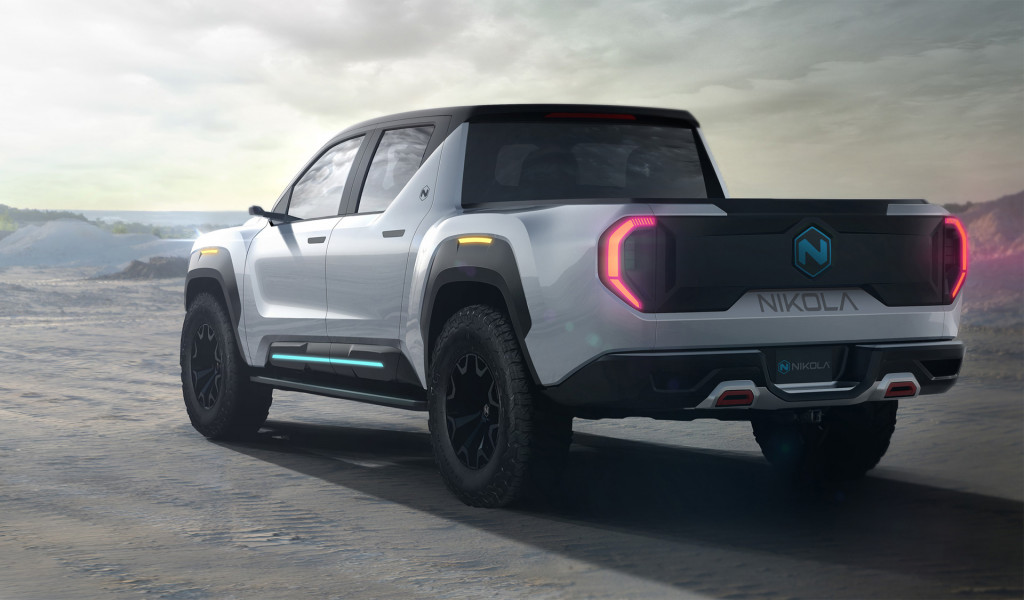The production-bound Nikola Badger fuel-cell-supplemented electric pickup truck hasn't yet been shown, and there's been no production plan yet announced. Nikola hasn't even delivered a single non-prototype vehicle. And yet the much-hyped company is now targeting a 2022 launch for the truck.
That information comes from a Reuters interview with CEO Trevor Milton. Three automakers are currently in the running for a joint venture to build the truck, with a final decision to be announced in the next few months, he said.
In the meantime, Nikola will open reservations June 29, Milton announced via Twitter, adding that the company will display a fully-functional prototype with a complete interior at an upcoming investor conference.
Nikola, which initially focused on hydrogen fuel-cell semi trucks, has not disclosed pricing, but in a reply to one of his tweets Milton said the truck will qualify for the full $7,500 federal EV tax credit.
The news comes shortly after Nikola's initial public offering and a surge of stock-market interest in recent days.

Nikola Badger
Nikola previously quoted a range of up to 600 miles for the Badger. That range will come from having essentially two energy storage systems on board: a hydrogen tank and fuel cell, and a battery pack.
If Nikola can meet its 2022 target, the Badger could arrive around the same time as the Tesla Cybertruck. Both companies are named after Nikola Tesla, the Serbian inventor and electricity pioneer.
However, Nikola hasn't yet delivered any production vehicles (just prototypes). Nevertheless, that hasn't kept it from gathering some high-profile orders for its commercial trucks from companies like Anheuser-Busch. The company was also awarded a $1.7 million Department of Energy grant for fuel-cell development.
The company plans to deliver its first commercial trucks to customers in the second half of 2021, Milton told Reuters. Trucks will initially be built at a factory in Ulm, Germany, but Nikola also plans to break ground on an Arizona factory later this year. Each factory will be able to build 35,000 vehicles a year at full capacity, according to Milton.
Nikola is also planning its own network of 700 hydrogen filling stations, to be used by its fuel-cell semi trucks. The pickup trucks could help justify the mammoth financial outlay required by that.
